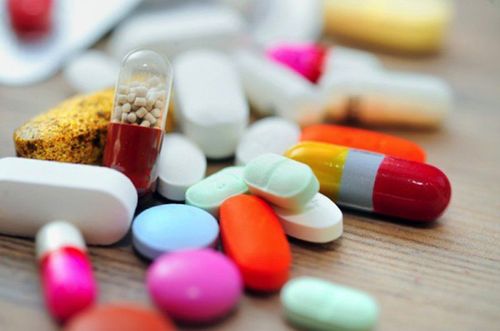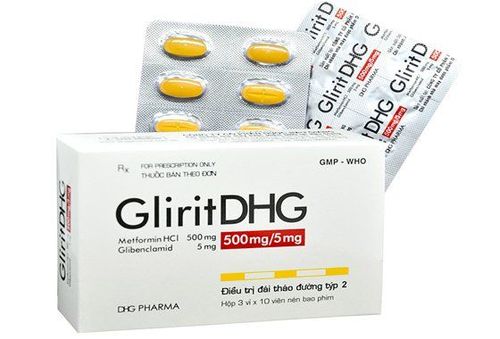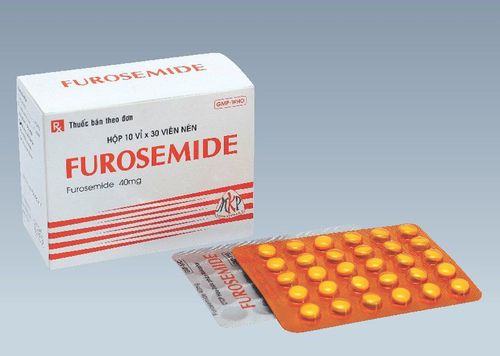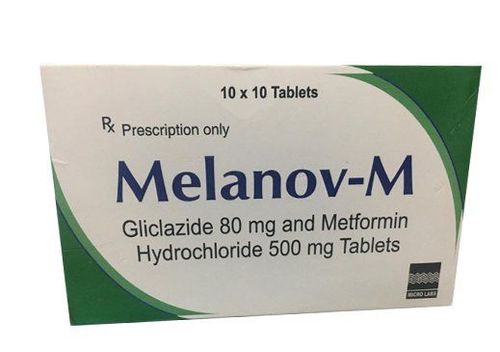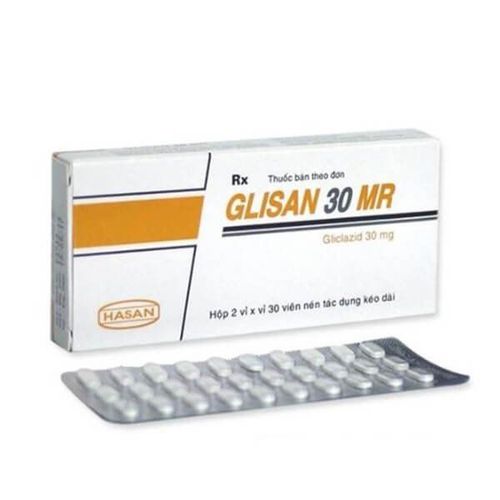This is an automatically translated article.
Repaglinide is a drug used in anti-diabetes type 2. Below is information about Repaglinide drug, its uses as well as instructions for safe and correct use of the drug.
1. Uses of Repaglinide
Generic name (Active ingredient): Repaglinide
Type of drug: Hypoglycemic drug (stimulating insulin secretion from pancreatic beta cells).
Drug content:
Tablet form 0.5 mg; Drug Repaglinide 1mg; Repaglinide 2mg. Uses of Repaglinide:
Indications to use Repaglinide alone or in combination with other drugs to treat type 2 diabetes for patients who cannot control blood sugar with other hypoglycemic drugs, diet diet and exercise. Controlling diabetes can help reduce your risk of having a heart attack or stroke. Repaglinide works by stimulating the body to make more insulin (a natural substance that allows the body to properly use sugar from the diet).
2. When is Repaglinide contraindicated?
Do not use Repaglinide drug for cases:
There is a history of severe hypersensitivity to Repaglinide; Type I diabetes; Diabetic ketoacidosis, with/without coma; Severe liver dysfunction; Concomitant use of Gemfibrozil; Children under 12 years old; Pregnant and lactating women; 3. Instructions for using Repaglinide 3.1. Use of Repaglinide in adults For patients who have never been treated with antidiabetic drugs or have HbA1c < 8% :
Initial dose: 0.5 mg; For patients already on antidiabetic therapy or with HbA1c ≥ 8%:
Initial dose: Repaglinide 1 mg or 2 mg. Monitor blood glucose, if blood glucose is not controlled, gradually increase dose every 1-2 weeks. Add 0.5 to 1 mg each time, until the maximum dose is 4 mg/time x 4 times/day. 3.2. Use of Repaglinide in other populations Elderly patients:
No dose studies have been performed in patients over 75 years of age. Patients with renal impairment:
Mild to moderate renal impairment: No initial dose adjustment is necessary but caution should be exercised when increasing the dose. Severe renal impairment (Clcr = 20 - 40 mL/min): Start with 0.5 mg daily and adjust dose according to the patient's condition. Not indicated for patients with Clcr < 20 mL/min or those with renal failure requiring hemodialysis. Usage: Drink 15-30 minutes before meals. Children:
It is necessary to consult a doctor before giving Repaglinide to children.
4. Notes when using Repaglinide in treatment
Patients should take the drug 15 minutes before each meal, usually 2-4 times / day depending on the number of meals or as directed by the doctor. This medicine should not be taken earlier than 30 minutes before a meal and can be taken immediately before a meal if needed. Do not take Repaglinide if you skip meals or if your blood sugar is low.
Dosage is based on the patient's medical condition, response to treatment, and other medications that may be taking. Therefore, it is important to inform your doctor and pharmacist of all products you are using (including prescription drugs, over-the-counter medicines, herbal products).
Repaglinide drug does not directly affect the ability to drive and use machines but may cause hypoglycemia. Therefore, patients should take precautions to avoid hypoglycemia while driving and operating machinery.
5. Treating an overdose or forgetting to use Repaglinide If you forget to take a dose, take it as soon as possible. However, if it is almost time for your next dose, skip the missed dose and take your next dose at the scheduled time. Do not take twice the prescribed dose.
If an overdose of Repaglinide is used, there may be an increased risk of excessive hypoglycemia with symptoms: Dizziness, sweating, tremors, headache...
When experiencing symptoms of hypoglycemia blood glucose, oral glucose should be replenished immediately. If the patient has severe hypoglycemia with convulsions, loss of consciousness or coma, it should be treated with intravenous glucose infusion.
Therefore, if the patient shows unusual symptoms, the first thing should be to stop using the drug and make sure to quickly bring the patient to a medical center for timely treatment.
6. Repaglinide drug interactions
Repaglinide drug interactions with other drugs:
Repaglinide is metabolised via CYP3A4 and CYP 2C8, so drugs that are substrates or act on these two enzymes will both affect the pharmacokinetics and therapeutic efficacy of Repaglinide. Drugs that may increase or prolong the hypoglycemic effect of Repaglinide: Gemfibrozil, Clarithromycin, Itraconazole, Ketoconazole, Trimethoprime, Cyclosporine, Deferasirox, Clopidogrel, other antidiabetic agents, Monoamine oxidase inhibitors (MAOIs), non-selective beta-blockers, Angiotensine agonists, Salycilate, NSAIDs, Steroids. Drugs that reduce the hypoglycemic effect of Repaglinide: Rifampicin, oral contraceptives, Barbiturates, Carbamazepine, Thiazide, Corticosteroids, Danazole, thyroid hormones and sympathomimetics. Beta-blockers for hypertension and heart failure easily mask the signs of hypoglycemia in patients receiving Repaglinide as well as other antidiabetic agents (eg, Tachycardia...) Repaglinide drug interactions with food:
Alcohol can cause hypoglycemia or hyperglycemia in diabetics. Hypoglycemia often occurs during the acute episode of alcohol consumption. Even small amounts can significantly lower blood sugar, especially when consumed on an empty stomach or after exercise. The mechanism involves inhibition of gluconeogenesis as well as a counterregulatory response to hypoglycemia. Episodes of hypoglycemia can last 8 to 12 hours after drinking alcohol. Conversely, chronic alcohol abuse can cause impaired glucose tolerance and hyperglycemia. Moderate alcohol consumption usually does not affect blood glucose levels in patients with well-controlled diabetes. Grapefruit juice may increase the plasma concentration of Repaglinide as well as oral drugs that are substrates of the CYP450 3A4 isoenzyme. The cause may be the inhibition of CYP450 3A4-mediated metabolism in the intestinal wall by some compounds present in grapefruit. Grapefruit juice and alcohol should be avoided during treatment with Repaglinide. Drug interactions can change how a drug works or increase side effects. Therefore, patients need to list the drugs they are taking so that the doctor knows and chooses appropriate oral medications.
Please dial HOTLINE for more information or register for an appointment HERE. Download MyVinmec app to make appointments faster and to manage your bookings easily.




